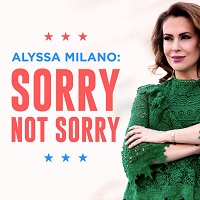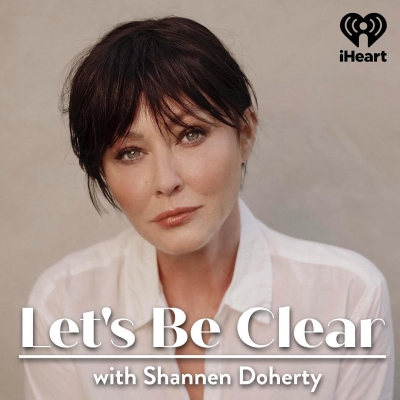
De website Stuff.co.nz heeft een stuk uit Rose’s boek ‘Brave’ online gepubliceerd waarin ze praat over haar jaren bij de tv-serie ‘Charmed’. Hierin is Rose niet geheel positief over haar persoonlijke ervaringen op de set van de serie.
Zo onthult ze dat ze blij was gevraagd te zijn voor de rol in de serie, omdat ze zoals ze zelf aangeeft weinig gevraagd werd voor nieuwe rollen nadat ze producer Harvey Weinstein enkele jaren daarvoor had beschuldigd van verkrachting. Verder geeft ze aan moeite te hebben met het zware opname schema van de serie die niet overeenkwam maar haar eigen leefrimte, ook zou ze een contract hebben getekend wat niet persé goed was voor haar eigen inkomen maar vooral die van andere. Ook onthult ze enkele negatieve aanvaringen te hebben gehad met crew-leden maar zich hierin niet gehoord voelde. Ze geeft aan blij te zijn dat de serie voor fans een iets positief brachts, terwijl ze de periode van de serie zelf niet als positief ervaarde. Ook geeft aan dat ze moeite had met de paparazzi en enkele negatieve ervaringen heeft gehad met fans die haar persoonlijke ruimte niet respecteerde. Iets wat vooral na het einde van de serie volgens Rose’s extremer is geworden door o.a. de macht van roddelwebsite’s.
When Rose McGowan alleged last year that Harvey Weinstein had raped her in a hotel room in 1998, she lit the flame that started the #metoo movement. Her new book Brave, both a memoir and a feminist call to arms, pulls no punches about Hollywood which she likens to a misogynistic cult. Editor’s note: This extract contains strong language.
I was in Romania when I got a phone call from Aaron Spelling, a legendary TV producer, famous for a slew of wildly successful if cheesy shows like The Love Boat and Dynasty and 90210.
He told me about a show called Charmed that had been on for three seasons; it was about good witches who helped protect the world from evil. There had been a major cast shake-up. Shannen Doherty, the show’s main star, was leaving the show and they were writing in a new character. Would I consider playing a role on television?
I didn’t know what Charmed was, but I was curious. On the flight home from Romania, the pilot episode of Charmed was available to watch. I have never seen Charmed offered on a plane since then, just that one flight. It felt like kismet. I’d been looking for a sign, and there it was. I thought the pilot episode was pretty cool so I agreed to meet and talk. It felt nice to be wanted after so much rejection and knowing I was blacklisted by my omnipresent Monster.
The bigwig’s office on Wilshire Boulevard in Los Angeles was like a football field of deep white shag rug. So deep I couldn’t see my high heels. A tiny little man, probably about five feet tall, was sitting behind a big desk, attended by his butler in tails. This was the legendary Aaron Spelling. It was wild because I used to love watching Dynasty with my mother when I was little and here I was now with the head honcho.
The butler brought Mr Spelling this big crystal goblet of blue Gatorade with a bent straw on a silver tray. I’ll always remember that. I imagined the conversation with Spelling: I like a bent straw. I just love that.
He was a sweet man. I didn’t dislike him; in fact, I thought he was kind of cute. The whole time I was in the meeting, I was imagining him with blue troll doll hair. That’s what I often did so I wouldn’t be nervous.
I started to speak and noticed Mr Spelling looking at me like I was part alien, and so did the couple of other executives who were in the meeting. That always happened everywhere I went in Hollywood. I think it was because the way I looked and the way I spoke were two very different things. Meaning I looked like a stylised bombshell, but definitely did not speak like one. People in Hollywood and the media world really did not know what to make of me. Instead of seeing me as an artist and mind, they put me in the “bad girl” category. They couldn’t seem to hear a f…ing word that came out of my mouth because they were too f…ing stupid. Tedious. I’m like the most patient impatient person in the world.
I was fine with being known as a rebel, but worldwide condemnation of you for being a bad girl will seep into your head. Plus, the “you’re bad” thing triggered a lot of my father’s earlier words and made them echo in my head. The old fear of being homeless, being helpless, began to creep back. I was scared of television because I’d heard that hours were brutal, and I didn’t know anything about that world. I barely watched TV. But it was a job. There was about to be an actors’ strike in Hollywood. I knew there might not be work for the next two years.
I started to think seriously about doing the show.
My movie blacklisting was still hanging over me. It felt violating that so many industry people knew of my trauma, but sided with my perpetrator. Years had passed since I had last had regular work in Hollywood, and I was only 28. I remember being embarrassed on my birthday because Entertainment Tonight announced my age. I felt ashamed. That’s how f…ed up my brain was. The messaging that you get from society, media, and Hollywood skews age-related thinking. Back then I thought it was just because young women were more beautiful, but now I realise that it’s because a young woman is typically more docile, often easily manipulated, and too easily tricked into doing what the man wants, both societally and individually. F… that. Funny how when we come into our own power as women, that’s exactly when we are considered unattractive. It is they who are unattractive.
So I said yes to Charmed. I was told that it wouldn’t run for more than two seasons, so I may as well sign a standard five-year contract. I should’ve realised that it was in other people’s moneymaking interest to do this, but not necessarily mine. Everyone was hoping I’d keep the show on the air and get them to their ultimate moneymaking goal, the Holy Grail known as syndication. That’s a hell of a lot of pressure for someone who had only been in indie films. I now had 150 crew members’ jobs to think about. Believe me, it factored into a lot of my decisions. For the next five years I was my character, Paige Matthews, more than I got to be myself.
Paige Matthews was half sister to the Halliwells, Phoebe, played by Alyssa Milano, and Piper, played by Holly Marie Combs. Alyssa Milano I’d known about because of her show Who’s the Boss?, which I was a fan of when I was small.
I was somewhat surprised to find myself in a world where we were together, we were so totally different. Her, raised as a wealthy child actress, and me, the scrappy weirdo. There definitely could have been drama on the set, but I refused to take part in it. The press was salivating at the idea of juicy tabloid stories coming from our set, but I refused to oblige. My interest in the job was purely mercenary, so I opted out of infighting. I refused to play games that were beneath me, but it didn’t stop the constant watching of our set. I cannot tell you how many times I was asked if we the Charmed Ones hung out after work. The answer was no. The one free hour I had when I went home for the night I tried to spend with myself.
I had so many life milestones on camera instead of in real life. My “first” wedding was a very meta experience. I walked down the aisle with a fake dad, with fake friends, fake sisters, a fake husband-to-be, a fake pastor: it was all fake fake fake. I went through the emotions as if it was really happening to me, because that’s what acting is after all. It was particularly weird faking a life event that has been sold to all of us as some monumental moment—”the most important day of a girl’s life.” I don’t necessarily agree that your wedding day should be the single greatest event in your life, but having it happen on-screen for the first time robbed something from me.
All told I was fake married three times on film before my “real” marriage. By then, I was repeating an emotional scene I’d already played. Your entertainment comes at a cost to us performers. You should know this and acknowledge.
When I started the show, I thought a lot about audience psychology. I, in all my infamy and not-girl-next-doorness, was supposed to step in after Shannen Doherty’s beloved character was unceremoniously killed off. I wasn’t going to be playing Shannen’s role, but it was still someone new for the fans to bond with. I had been told that many shows don’t survive a major cast change. I knew that I had a slim chance at success here. People had to fall in love with my character as quickly as possible or Charmed would die. I thought about how big the crew was and how they would all be out of a job if I failed. So I made myself look super non-threatening. I gained weight, about ten pounds, for the role. I wanted to look as soft and approach-able as possible. Boring.
There was an edict from the studio that none of us was allowed to cut or colour her hair without permission from the studio president. I thought that was some serious bullshit. As I was about to return for my second season on the show, I dyed my hair red without asking permission. Oooh. The studio got wind of it and flipped out, of course. They were furious and demanded to know how I expected them to explain this. I told them: “It’s a show about magic. You simply say I was mixing a potion and it exploded in my face! My hair turned red! I liked it, so I kept it.” That became the very first dialogue of the season, almost verbatim, between me and the character Leo. All it takes is a little creative thought, but the studios rarely have that working for them.
There was another big to-do on the set when Holly Marie Combs cut her bangs. The studio feared people wouldn’t recognise her. That’s how dumb they think you audiences are. If a character changes their set look in any way, audiences won’t know who they are looking at. I wish you could all be flies on the wall when studio executives and producers talk about you all. Believe me, you are looked at as sheep with no minds of your own.
I’d become almost a sheep myself, and I was losing my mind. Day after day, month after month, year after year, my brain space being eaten up by dense dialogue that’s just slightly different from the previous episode, will do that to you. Eight to 10 pages a day. I was having the same conversation that I had had in the episode a week before, but with the guest stars slightly altered. You could’ve interchanged anything I said in almost any episode with any other episode. That was the part that just made me insane. It was prison for my mind. I was starting to lose my grip on my sanity. And I was so very lonely.
Sometimes to amuse myself I left the set at the end of the day with the fake blood still on my face or a giant wound, and I’d stop at the grocery store on my way home. I would do it to test the public, to see how they reacted to a wounded woman. Nobody asked to help me. Not once. They would just avoid eye contact and look down at the floor. It gave me great insight into the invisibility of an abused woman. Note to society: you should always ask if a woman needs help if they look abused. Do the right thing. Be bold and be brave.
I’ve always liked to conduct social experiments. I think it was my way of keeping sane and entertaining my mind, which was just atrophying during this period. I could feel my mind dying, and I didn’t know what to do. I was too tired, too lonely, and too sad to do anything about it.
I made it a point to not involve myself in petty set politics. I think sometimes when people have led coddled lives, they like to create drama—it makes them feel like something’s happening, something’s going on. But I had had real drama, real problems. I refused to create nonexistent problems to give my life a sense of faux importance.
Only one female director was hired in the entire five years I was there, and the crew sank her. This was a show about three young women, and they had not in all the time I was there had a female director. But the mostly male crew, I think without even realising what they were doing – they just cut the female director’s legs out from under her. The crew would snicker in disrespect when she would direct them. I can’t imagine it was a pleasant working environment. I feel horribly about not fighting for her more, but I didn’t fully understand the dynamics of what was happening. My character was too busy talking to leprechauns to have the time.
Anytime on that show that I said I really liked a director, if it was someone from outside of the Spelling all-average, all-white male mob, which was very rare, they never returned. If I said I hated somebody, they would return for sure. There was one director we had, whom I was so excited to work with until I met him. The day he showed up to direct we were in my fourth or maybe fifth year on the show, and the show could direct itself. It was a well-oiled machine.
So in the first rehearsal of the day, after walking from point A to point B, I exited right. It’s not a hugely important decision, and the new director hadn’t given any direction as to whether to exit right or left. But he exploded. He yelled: “You idiot. You do not cross in front of my camera! YOU DO NOT CROSS IN FRONT OF MY CAMERA!” He kept yelling. The man had a meltdown. His voice reverberated off the walls. I was in shock. He kept yelling and now started cursing me out. Bitch. Idiot. Bitch.
This was exactly one minute or so after we said good morning to each other. It was 7.30 a.m. No one shut him down. Not one person on the almost all-male crew, not one producer, not the assistant director. Men I had worked on the set with for years. Why? Because the director, even if there for only thirty minutes, was a guy and I was a young woman.
I was thinking, Excuse me, I don’t even f…ing know you. You’re in my house. Yet you feel so comfortable and assured in your place in this firmament of male directors that you’re going to do this to me? I told the producers: “I will never work with that man again.” They assured me he wouldn’t be allowed to verbally abuse me again.
Guess who was back two months later. This is just a minor note in the screamer directors I’ve endured. Hollywood is known for screamers and belittlers, and their abuse gets a pass. I’ve never seen or heard a male actor be abused on a set. It’s time for people in any workplace to do what they can when another is being bullied and terrorised; it’s time to stand up for those around you. If you do not, you will be called out, you will be shamed, you will be dragged.
It was just another example of a man getting a free pass. Can you imagine in the first hour of your new boss’s day he screams at you in front of everyone and not one person steps up? Maybe you can. I hope not, for your sake. There is no excuse for abuse. Not ever. Being screamed at aggressively is something the body takes in and it’s jarring and traumatic. But you know, go put your short skirt back on and say the lines, little lady, ‘cause you’re an actress so you better take it.
Yes, there are other industries where there is screaming, but you have to understand, there is zero federal oversight in Hollywood.
It’s hard to reconcile the sweet little old man I met – Aaron Spelling – with all the decades of sexist media he’d produced and put out into the world. Credit for that sexist media also goes to the people he surrounded himself with: the executives, all male; the writers, mostly male; the head writer, male. On a female-driven show, of course.
What made all of the sexism on the set even more galling was the fact that the show was carried by women, made for a female audience. Because they know how to get into young women’s minds, for sure. There is a completely understandable outcry over whitewashing, casting white actors to play roles that were in the source material meant to be for a person of colour. Why is there no outcry over men telling women’s stories? There should be; it’s not like they do it well. They do it so it’s just good enough. I’m bored of good enough and I know the public is too.
During year two of Charmed I decided to go to hypnotherapy. I found the repetitive days so opposite to my natural rhythms that I became sick over and over. And it was at times a very stressful environment. I started to have panic attacks because of everything I was pushing down. We filmed in a place called Woodland Hills. Simply seeing the word wood was enough to make my heart race and my palms go sweaty. I was sick about four or five times a season.
We would shoot 22 or 23 episodes. On hour-long TV, you are essentially shooting half of a feature film in eight days. The pace was gruelling. Two years in a row I had 102-degree fevers and got dropped into giant trash cans, in a stunt, always on the days that I was the most ill. That is the only time I allowed myself to feel sorry for myself. Part of my being a hard-ass on myself for my whole life really kind of hurt me in the long run. The exhaustion was real and raw. Twelve to 16 hours a day for about five years straight in a wash, rinse, repeat environment unlike any I’d known. Kind of like being in a really fancy factory, like working on an assembly line of sorts.
One day, three of the Charmed producer men strolled up to my trailer to inform me that my one friend on set, Sam, had been fired after being caught smoking weed on a school bus set.
Sam was cool, not the usual Spelling crew member, with his dreads and his real smile. I was genuinely saddened because Sam was the only one I could sense was like me. But I said it was for the best, his soul needed to be free. I couldn’t help smiling as I asked the producers, “So if I smoke weed on the set, will you fire me? Could I be free?” Their response wiped the smile off my face. “We will garnish your wages for all time, no matter where you go. We will take your money, and we will ruin you and you will never work again.” All said with extremely straight faces because they were not f…ing around. F…. This Hollywood detour of mine took me down the wrong alley. I sure did meet a dangerous crowd. Only these were rich white men on studio lots, not in a back alley.
It’s a particularly terrifying thing to have men tell you that you’re going to be punished so badly you will never be hired again. But that’s the pervasive attitude in Hollywood: “Don’t step out of line, little girl. We can just point to the next one right after you.” There is a constant stream of young and damaged women flowing into Hollywood.
If you are reading this book because of Charmed, thank you for being a fan of the show and my character. I respect you and I honour you. I know it’s brought a lot of joy to a lot of people. I was glad to be of service. I am glad something really good was coming from what, for me, was a very difficult time. When I say anything that’s negative about the show, you have to understand I’m speaking about my personal experience. Not Paige Matthews, my character, but me, Rose. But you can always find good in most situations and so that is what I choose to focus on. There is much that I’m proud of from this period. For a long time Charmed was —and might still be — the longest- running female-driven hour-long show in history. I wish we got more credit for that, because it’s important.
In 2006, as Charmed came to an end, I returned to a changed media world. When I left society five years before to do the show, celebrity culture was different. The gossip websites now ruled. The paparazzi were now insanely aggressive. The tabloid magazines were drunk with profiting off Lindsay Lohan’s antics and Britney Spears’s troubles. And if you were well known, you were hunted, not just by the paparazzi; the public at large became something to fear. Every stranger with a phone became a potential informant. It was the first time people started posting online where you were, what you were saying, what you were doing. Everybody was reporting on anyone well known and you didn’t know where the enemy was because it was no longer just the paparazzi or the gossip columnist. It was everybody. I was forced to live a life where I didn’t say anything, I didn’t do anything, lest I be branded a bad girl. Most were so freaked out by people reporting false items, they just stayed hidden. At least that’s what I did.
I was overwhelmed by the media’s new world order. There was no Instagram to speak for yourself, so if lies and smears were written, they were taken as fact. And, wow, was I smeared.
Even in a place that’s supposed to feel safe — your work environment — I felt hunted and objectified. Just walking back and forth to the set on the Paramount studios lot was stressful; there’d be a long train cart, packed with tourists, all pointing at once and taking my photo. It was like: “There’s the actor in her natural habitat. Please don’t feed the actor.” To be the one on the other side of the hunter’s camera felt vulnerable as hell.
I decided to escape America for a bit, thinking the hunting would be less prevalent. I got chased out of the Vatican once by about thirty German tourists. I shouldn’t have been at the Vatican that day, I was so sick, but I had desperately wanted to see it.
I clung on to the old stone buildings trying to get away, and then finally, the crowd caught up to me. I was cornered. I flattened myself against the wall. I remember thinking, We’re at the Vatican. Isn’t seeing Michelangelo’s work more important than someone on television? I was sweating and scared. I was being jostled as someone pushed through the crowd, I thought to help me. Instead a man grabbed my hair and yanked a small clump out. I screamed and pushed, but I wasn’t being let out of the circle. When they surrounded me, it was like a wild pack of dogs. I couldn’t see their faces because they had their cameras pointed at me, the flashes blinding me. I could only see hands as I got pushed sideways and back, white circles where people’s leering faces were. I felt as if I were being eaten alive.
People need to respect boundaries. Just because you see someone you feel you know, does NOT mean you get to harass them or touch them. The person you think you know owes you the same as any human does, which is nothing more than politeness. So be polite, be respectful, do not surround, do not grab, do not clutch, do not push. Be civilised and you will usually get that in return.
What I experienced in that crowd of “fans” was traumatic and assaultive. I had a small bald patch where my hair had been pulled out. These kinds of situations happened frequently.
Fame is something so many think they want, but the reality is something hard for them to see. The next thing many say is “you made money” as if money equals happiness. As if money equals safety. As if money equals peace. I would also say do not make your value system mine. When I finished Charmed, I was told by my then publicist: “If you need to step out the door and there’s a camera anywhere, you better have someone come dress you and do your makeup.” God forbid you show your actual style. God forbid you go to a store like every other person and put on something that represents who you are. God forbid you wear something more than once like a normal human does.
Hollywood publicists, whom you’re told you must have and who cost around $6000 per month, tell you what you should act like, look like, talk like — how you should respond to the press. They prey on fear and manipulate actors by threatening: “Oh, the studio will be really upset with you if you don’t do this.” They are a key part of the machine that keeps you in line. The kicker is you’re paying them to f… with your head.
In classic Hollywood times, publicists were the people who covered up what the stars did. Now, the stars don’t even really do that much, not like they did back then, because they’ve been so trained to not do anything. God forbid the public find out you’re human.So in any case, after Charmed, my very expensive publicist told me I needed a very expensive stylist. I should’ve asked, Why am I paying somebody to put their idea of what I am on me? I didn’t have a stylist during my pre-Charmed era, and I seemed to manage fine; what has changed? But my brain had been twisted for so long I no longer had an internal compass.
When a stylist is paid to come put a look on you, their main goal is to make you attractive to the male species. It’s a very stereotypical idea of what is sexy, what is hot, what is f…able. But it is not cool and, boy, did stylists do a number on me. I was made to look like a plastic weirdo. And I paid a lot of money to look like a plastic weirdo.
The bizarre thing about the industry is: you were discovered because you were unique. What was special about you when you were discovered, they do their damnedest to remove, not unlike what traditional society does to children. When I was discovered, I had a raw quality and my own style; at the end of my career it was Barbie hair and beauty pageant looks. Then, every photo of me was photoshopped. Meanwhile everyone online was telling me how ugly I was. Then I’d go to work and play other people. You need all your faculties to be in a semi-denial stage in order to survive it. Things that are abnormal become the norm, up is down.
And that is how I got lost from myself. I bought my first piece of “important” art at the height of my “fame.” The piece is of a woman who looks like a ghost, which represented what I felt like at the time. Just lost behind this haze of objectification and misunderstanding.
I had gotten lost from myself, terribly, terribly lost.
© Brave, By Rose McGowan, Published by HQ, an imprint of HarperCollins.



















